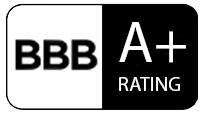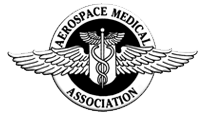From an aeromedical certification standpoint, Pilot Medical Solutions does not recommend Electron Beam Heart Scans (EBCT’s) as an asymptomatic cardiac screening tool. If your doctor wants you to have the test, so be it. When appropriately used this test can provide useful information, however, as a screening tool and without medical indications for this test, it can lead to unnecessary invasive testing and can result in the unnecessary grounding of a pilot. If you have received this test, contact Pilot Medical Solutions to establish your eligibility for FAA medical certification.
Facts about Heart Scans (EBCT) by NSCG, Ltd
As advances are made in the treatment of cardiovascular disease, a variety of tests have been developed to detect and monitor these problems. All have validity when used appropriately, but sometimes the purpose of a test may be misunderstood. For example, echocardiography that views the heart in motion, or vascular Doppler tests to assess blood flow in the arms or legs, have highly beneficial medical applications, but neither would be suggested for everyone as a screening tool.
Another of these heart tests recently getting wide, if perhaps confusing attention, is the ultra-fast (electron beam) computed tomography scan (EBCT), more popularly known as a “heart scan”. It is especially important to understand this test because it may or may not be well suited for assessing a specific individual.
The test has become a heavily advertised procedure for the early detection of coronary heart disease. Promoted by extensive marketing campaigns, this test is touted to be both painless and accurate and does not require a physician’s order to be scheduled. But what is this new test? How accurate is it? Will insurance cover the procedure? Is it truly cost-effective? Does it play any role in the management of coronary heart disease (save or lengthen lives)?
The answer to the first question is simple. The EBCT “heart scan” is an elegant, sophisticated x-ray that very accurately identifies and quantifies the presence or absence of calcium deposits, both in or around the coronary arteries (arteries that feed the heart). Strong statistical correlation exists between the presence of these calcium deposits and the presence of coronary heart disease. It should be noted, however, the statistical correlation is heavily age dependent, as calcium deposition appears to be a natural phenomenon of aging.
Therefore, the predictability of an individual with coronary calcium deposits for having significant heart disease is higher for those in younger (40’s – 50’s) than in older age groups. Likewise, the predictive accuracy for individuals without coronary calcium deposits being free of significant disease is lower in younger test subjects. Unfortunately, this test is being marketed as a self diagnostic test for the presence or absence of coronary heart disease. Any person experiencing warning cardiac symptoms, who then undergoes a “heart scan” and gets a favorable result, may erroneously forego medical consultation and miss the real diagnosis.
For a screening test (mammography, pap smear, trace blood in the stool) to be cost-effective, the test must be highly accurate, reproducible, inexpensive, and must deliver information that would alter therapy and change a prognosis. By way of example, thirty years ago an annual chest x-ray was considered to be a routine screening test for the detection of lung cancer. A chest x-ray is inexpensive ($25 – $40), accurate and its results are reproducible. Unfortunately, numerous large scientific studies failed to show a reduced lung cancer death rate for this type of annual screening, and so the mass testing was abandoned. The EBCT “heart scan” is also both accurate and reproducible in detecting heart calcium deposits, but its high cost ($300 – $600 per test) makes it less desirable as a mass screening tool. Even more important than cost, however, is the absence of any controlled, randomized scientific studies to show that a large population screened in this way for heart disease lives any longer or better than a similar population that is not screened. Of course, few, if any, insurance companies pay for this clinically irrelevant test. In the words of the Task Force on Practice Guidelines (Committee on Management of Patients with Chronic Stable Angina), a joint medical team of experts from the American College of Cardiology, American Heart Association, American College of Physicians-American Society of Internal Medicine, “Therefore, the use of serial EBCT scans in individual patients for identification and serial assessment of the progression or regression of calcium remains problematic. The proper role of EBCT is controversial and will be the subject of future ACC/AHA statements.”
As technology advances and more accurate tests for detecting early narrowings in the coronary arteries are perfected, and as treatments are developed that remove all traces of these narrowings, mass screening for heart disease will likely become a necessity. Until such time, however, following a low fat diet, exercising regularly, avoiding tobacco products, maintaining regular contact with one’s personal physician, and obtaining prudent consultation with a cardiology specialist, remain the best ways to prevent, detect and treat coronary heart disease.
| Copyright © North Suburban Cardiology Group, Ltd. |
Contact Pilot Medical Solutions at 405-787-0303



